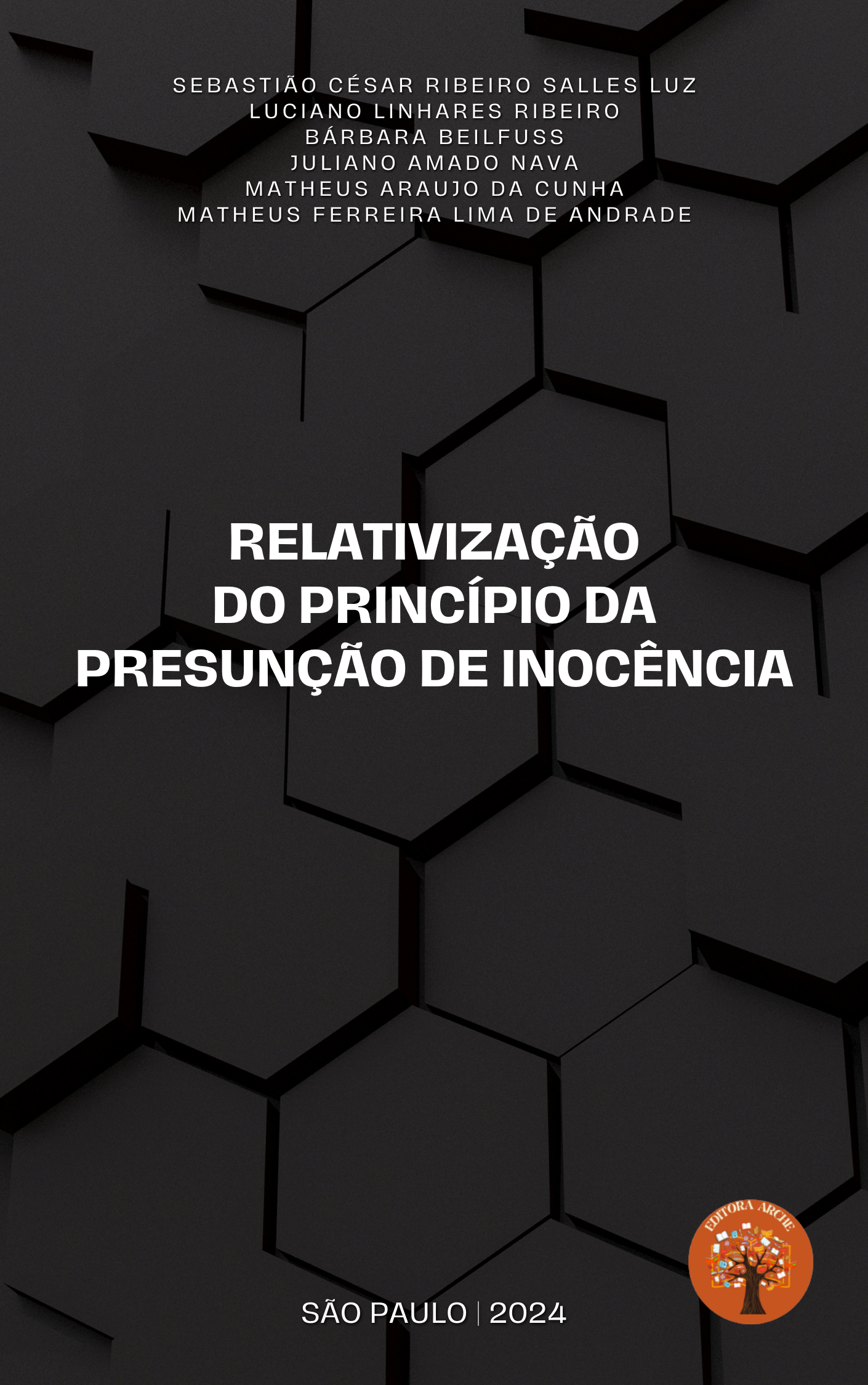RELATIVIZATION OF THE PRINCIPLE OF PRESUMPTION OF INNOCENCE
Keywords:
Injustice. Innocence. Relativization.Abstract
The book, "Relativization of the Principle of Presumption of Innocence", addresses in a comprehensive and detailed manner a crucial issue within contemporary Criminal Law: the relativization of the fundamental principle of presumption of innocence.
Throughout this book, we thoroughly explore various aspects related to this topic. We begin with an analysis of the evolution of Criminal Law and the principles that underlie it, in chapter 1. The book delves into the roots of Criminal Law, tracing its evolution over time and identifying the principles that shaped its foundations. From the beginnings of societies to the complexities of the contemporary legal system, we analyze how conceptions of justice and punishment have evolved, directly influencing the understanding of the principle of presumption of innocence.
Then, we enter the heart of the discussion, dedicating chapter 2 to the study of the Principle of Presumption of Innocence in the world and its conformation in the Constitutional Charter of 1988. Furthermore, we examine its implications and challenges in a contemporary context, where the balance between The protection of individual rights and the pursuit of justice becomes increasingly complex.
In the following chapter, we expand our scope of analysis, connecting the principle of presumption of innocence to Human Rights and the justification of the law. We investigate how this principle fits into the broader fundamental rights and how its relativization can impact not only the legal system, but also society as a whole.
In Chapter 4, we enter a delicate and controversial sphere of Criminal Law: the Criminal Law of the Enemy. We analyze the intersections between this Germanic theory, its controversial application and the principle of presumption of innocence, questioning to what extent the relaxation of this principle can open space for punitive practices that distance themselves from democratic values and human rights, proclaimed by the Brazilian Constitution. 1988.
The issue of the burden of proof is addressed in chapter 5. In this chapter we investigate how the distribution of the burden of proof can affect the effective application of the principle of presumption of innocence and what challenges legal systems face in ensuring fair and impartial justice.
Next, in chapter 6, we launch a critical analysis of the presumption of innocence as a subterfuge for impunity. We examine emblematic cases and discuss the ethical and legal limits of this prerogative, seeking to understand how to prevent it from being exploited to the detriment of justice.
In chapter 7, we highlight recurring distortions of the principle of presumption of innocence, revealing the challenges faced by legal systems to guarantee its effective application and avoid abuses and injustices.
Finally, we explore the growing importance of technology for solving crimes and how it can directly influence the application of the principle of presumption of innocence. We investigate the new tools available and the ethical and legal dilemmas that arise with their use, seeking to balance investigative effectiveness with the protection of individual rights.
Finally, in the conclusion, we tie together the threads of the entire work, presenting final reflections on the topics discussed and pointing to possible future paths in the legal field.
In essence, this digital book is the result of extensive research and reflection on a topic of great relevance to contemporary society. We hope that it can contribute significantly to the academic and legal debate on the relativization of the principle of presumption of innocence, encouraging critical and constructive reflection on the topic.
We wish you all a fruitful reading,
The authors
Downloads

Downloads
Published
How to Cite
License
Atribuição CC BY
